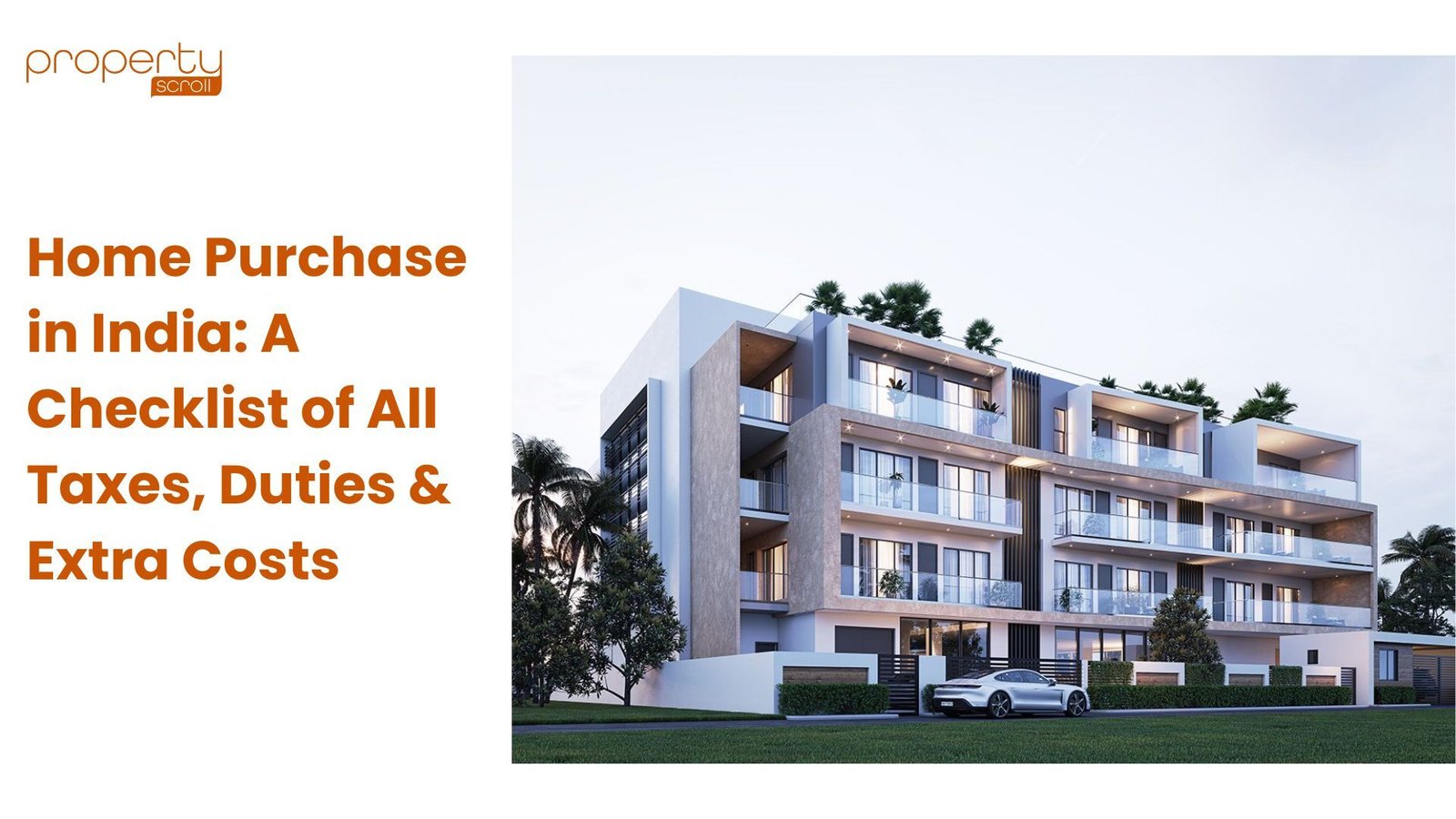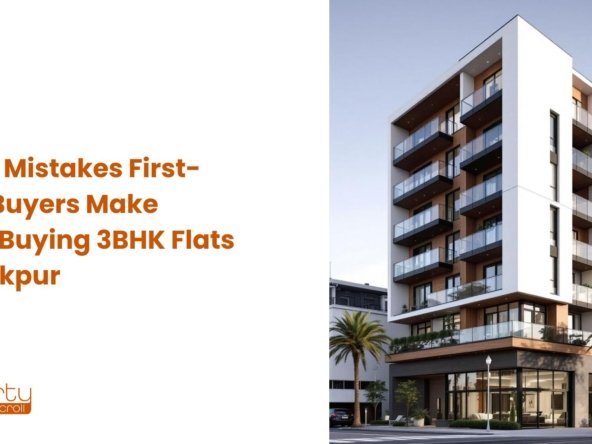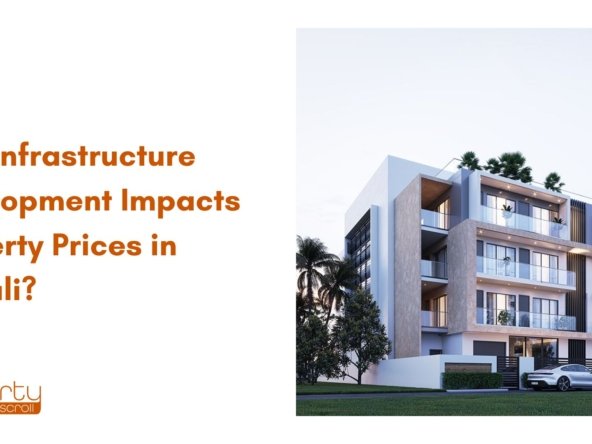Buying a home in India is one of the biggest financial decisions of a lifetime. Most buyers budget for the property price, but often underestimate the additional costs that come along with it. These hidden charges can easily add 10–15% to the actual purchase price. If you’re exploring options through a Property Portal, understanding these taxes and duties is crucial before making the final decision.
In this blog, we’ll walk you through a comprehensive checklist of all taxes, duties, and extra costs you must account for when buying a property in India.
1. Stamp Duty
Stamp duty is a state-level tax imposed on property transactions to make them legally valid. The percentage varies across states, usually ranging between 5% to 7% of the property value.
- Some states offer rebates for women buyers (e.g., Delhi and Haryana).
- Urban vs. rural areas may also have different rates.
Example: If you’re buying a flat worth ₹50 lakhs, you might pay ₹2.5–3.5 lakhs just in stamp duty.
Pro Tip: While searching on a Property Portal, always check if the listing mentions the stamp duty percentage in that region.
2. Registration Charges
Along with stamp duty, you’ll need to register the property in your name with the local sub-registrar’s office. The registration fee is usually 1% of the property value.
- This cost is non-negotiable.
- Without registration, the ownership is not legally recognized.
Example: On a ₹50 lakh home, registration charges will be around ₹50,000.
3. Goods and Services Tax (GST)
If you’re buying an under-construction property, GST is applicable. Currently, the rates are:
- 5% for residential properties (without input tax credit)
- 1% for affordable housing projects
Completed properties with occupancy certificates are exempt from GST.
Many Property Portals now clearly highlight whether GST applies to a project—something to keep an eye on.
4. TDS (Tax Deducted at Source)
For properties valued above ₹50 lakhs, buyers must deduct 1% TDS from the sale value and deposit it with the Income Tax Department.
- Example: On a ₹70 lakh property, you’ll need to pay ₹70,000 as TDS.
- This must be filed online through Form 26QB.
5. Property Tax
Once the home is yours, you’ll be liable to pay annual property tax to the municipal corporation.
- Rates vary by city, property size, and location.
- Some cities (like Bangalore, Mumbai, Delhi) calculate it based on unit area value.
Checking estimated property tax for the area through a Property Portal or municipal calculator can save you from surprises later.
If you’re financing your home through a bank or housing finance company, watch out for these costs:
6. Home Loan Processing Fees & Charges
- Processing Fee: Usually 0.25%–1% of the loan amount.
- Legal & Valuation Fees: ₹5,000–₹10,000 approximately.
- Prepayment Charges: Applicable on fixed-rate loans if you repay early.
7. Maintenance Deposits & Club Membership Fees
Builders often charge upfront fees for maintenance or club memberships in housing societies.
- Maintenance deposits: ₹50,000–₹2 lakhs depending on project size.
- Clubhouse/amenities fees: One-time or annual charges.
These may not be visible in the initial listing on a Property Portal but are typically disclosed at the agreement stage.
8. Parking Charges
While the Supreme Court has ruled that open parking can’t be sold separately, covered parking slots are often sold as add-ons.
- Costs can range from ₹1–5 lakhs depending on city and locality.
- Always confirm parking availability before finalizing.
9. Interior & Fit-Out Costs
Most homes are sold as bare-shell or semi-furnished units. Budget for:
- Woodwork (wardrobes, kitchen cabinets)
- Electrical fittings
- Furniture and appliances
This can add another 10–15% of the property value.
10. Brokerage Fees (If Applicable)
If you buy a home through a broker instead of directly via a Property Portal or builder:
- Brokerage is usually 1–2% of the property value.
- Example: On a ₹60 lakh home, that’s ₹60,000–₹1.2 lakhs.
11. Legal & Due Diligence Charges
Before purchase, hire a property lawyer to:
- Verify title deeds
- Check encumbrances
- Review builder-buyer agreements
Legal fees can cost anywhere between ₹10,000 to ₹50,000, depending on property complexity.
12. Advance Maintenance Charges by RWA/Society
Once you move in, Resident Welfare Associations (RWAs) may collect advance maintenance charges (quarterly or annually). These typically cover:
- Security
- Water supply
- Common area electricity
13. Insurance Premiums
While not mandatory, home insurance protects your asset from risks like fire, theft, or natural calamities. Annual premiums are relatively low but worth factoring in.
14. Other Miscellaneous Costs
- Mutation Charges: For updating ownership records in municipal registers.
- Utility Connection Fees: For electricity, gas, and water connections.
- Moving & Shifting Costs: Packers and movers can cost anywhere from ₹20,000–₹1 lakh.

Final Word
When you calculate everything, the “real cost” of owning a home goes well beyond the base price quoted on a Property Portal.
Taxes and duties like stamp duty, registration, GST, and TDS are unavoidable.
Extra costs like parking, interiors, and maintenance can significantly inflate the budget.
Recurring expenses like property tax and insurance must also be considered for long-term planning.
Pro Tip for Buyers: Always add 10–15% cushion to your budget to cover these hidden charges. Before finalizing any property, use a trusted Property Portal to compare projects, check location-specific tax rates, and estimate extra costs.



